Three questions for researchers at the department
Prof. Dr. Gianina Iordachioaia
How did you get into linguistics?
As a child, I wanted to become a teacher, so I went to a pedagogical high school to become a primary school teacher. So, around the 9th-10th grade, I heard about linguistics as a science from our Romanian teacher - about Ferdinand de Saussure and Noam Chomsky. At school, I always liked grammar and math/logic, but not necessarily literature or other sciences. That's why linguistics seemed to be just the science for me. Then I knew right away that this would be my future. So I completed BA and MA studies at the University of Bucharest, then a PhD at the University of Tübingen and after various positions at the University of Stuttgart, University of Potsdam and Humboldt University of Berlin, I started working as a professor at the Institute of Linguistics at the University of Graz in March 2024.
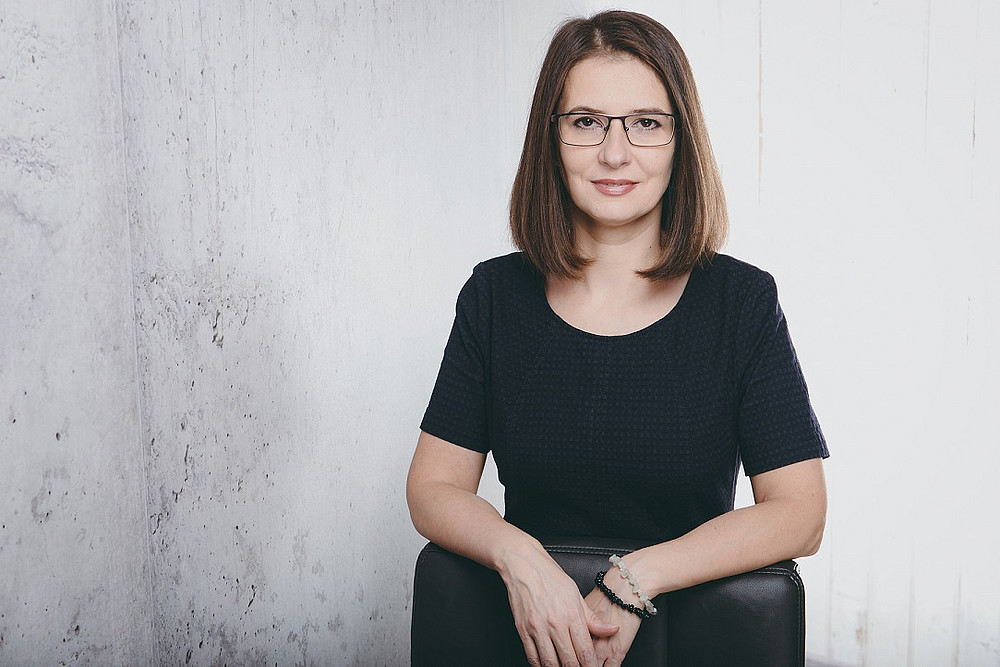
What do you find exciting about linguistics?
In grammar theory, the field in which I work, you try to find out which abstract principles underlie human language in general, so that they can be recognized in different forms in the most diverse idioms of the world. What I find most exciting about my work is that we linguists keep finding confirmation of this assumption of an underlying system of language, independent of individual language.
For example, linguists have long recognized that sentences are not processed and interpreted linearly, i.e. not in the order in which they are written or spoken, but in a hierarchical structure consisting of so-called constituents, which in turn have an internal hierarchical structure. Let's take the German sentence Die rote Blume liegt auf dem Tisch. If we were to interpret the sentence in the order in which it is written, we might try to interpret the first two words die and rote as a complex element die rote. But then we would not understand the sentence correctly, because it is actually the first three words that together form the constituent die rote Blume, in contrast to a sentence like Die rote liegt auf dem Tisch, where die rote is actually a constituent. In the same way, liegt auf is not interpreted as a constituent, because the verb and the preposition do not form a unit in this case either, although they stand next to each other (cf. Er legt auf). The preposition belongs together with the table and thus forms a constituent. In German, you can actually recognize non-verbal constituents very well, as they always take the position before the verb in the main clause: cf. [Auf dem Tisch] liegt die rote Blume vs. *[Dem Tisch] liegt die rote Blume [auf] vs. German is a V2 language, i.e. the verb comes second in the sentence and a full constituent always comes first.
Let's take a look into your future: what would you like to focus on in your research in the future?
The aim of my research is to determine the main patterns of meaning constitution in natural languages and to develop a unified theory of sentence structure and word formation. To this end, I am working on the morphology-syntax-semantics interface. Recently, I have done a lot of research on nominalizations, i.e. constructions that are adjectival or verbal in content but behave syntactically like nouns (e.g. schön - the beauty; spazieren - the walk). There are also so-called mixed nominalizations, which syntactically have both adjectival/verbal and nominal properties: e.g. the beauty of this thing is internally adjectival, because beauty can only be modified by adverbs (the [extreme/*extreme] beauty of this thing) in comparison to beauty, which can only be modified by adjectives, like lexical nouns: see the [extreme/*extreme] beauty of this thing. Externally, however, beauty is also nominal because it contains the article das, just like lexical nouns such as das Buch or das Auge. These observations are very important for a theory of grammar because they can provide us with information about the boundaries between grammatical categories in the language system.
To test my hypotheses in grammatical theory, I am also interested in psycholinguistic methods. I am currently preparing an experiment to investigate the differences in meaning of the various suffixes that appear in deverbal nominalizations in English: for example, for a verb like starve, which has two usages (see The conquerors starved the population and The population starved), can nominalizations with suffixes like -ing and -ation (see the starving of the population and the starvation of the population) also express both readings like the base verb? If the results for English look promising, I would like to conduct a similar experiment for other Romance, Germanic or Slavic languages in order to test my hypotheses in several languages.
Furthermore, I find second language acquisition very exciting and what the differences between first and second language acquisition can tell us about the human capacity for language learning. One topic that particularly interests me here is how the mother tongue influences the acquisition of a second language, e.g. how differences between different patterns of mother tongues affect the acquisition of the second language. I would also like to develop a research project on this in the future, which could contribute to and benefit from cooperation with other researchers at the GEWI faculty who are conducting research into multilingualism, migration and cultural transformation.
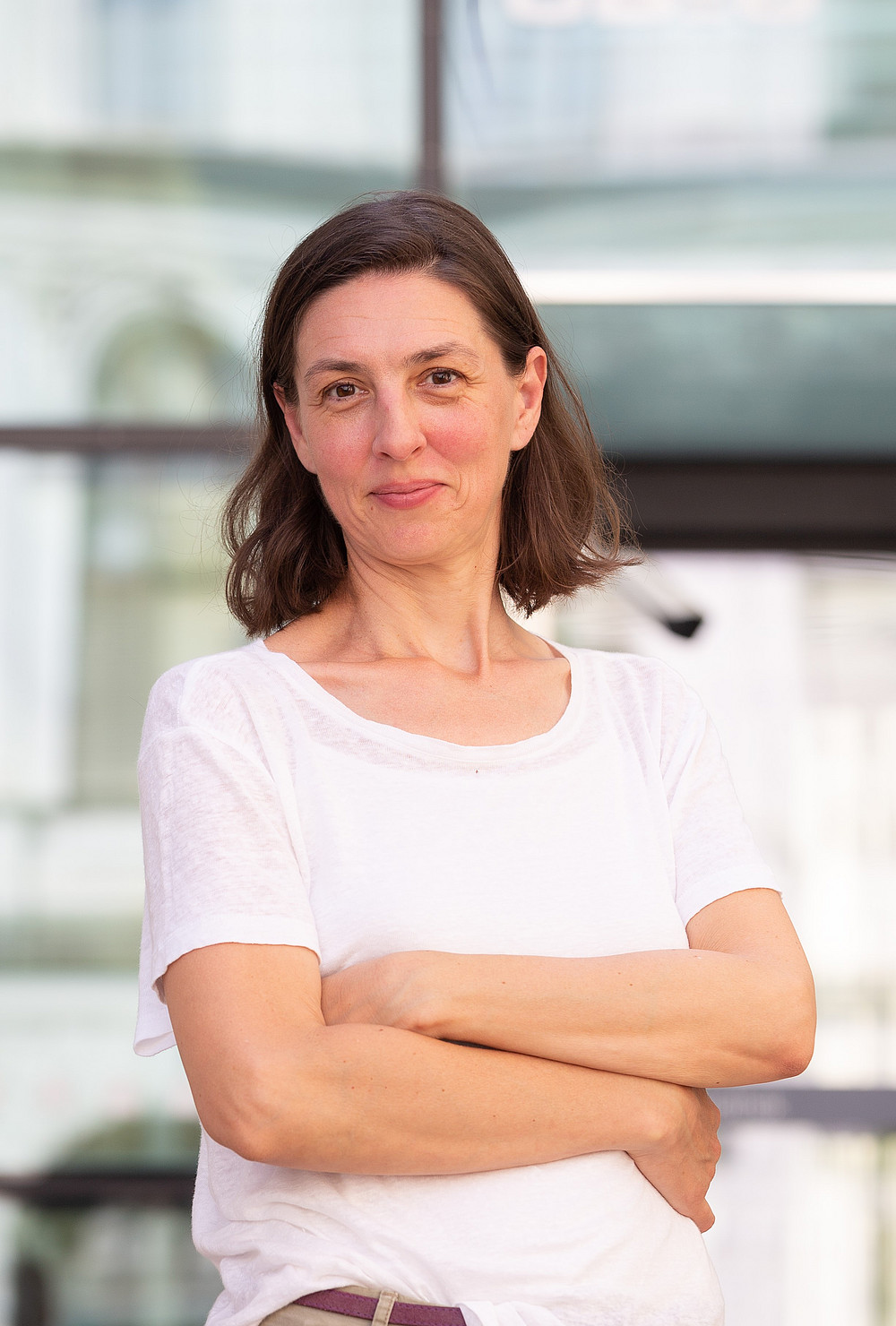
Assoc. Prof. Mag. Dr.phil. Veronika Mattes
How did you get into linguistics?
Via a few detours. Even as a child, I was fascinated by people speaking different languages and when I was traveling, I always tried to find out something about the language of the country. However, when I decided to go to university, I was not yet aware of the subject of linguistics (at that time, it was actually not so easy to find out about study options without the internet). So I started with Romance and German studies at the University of Salzburg and quickly realized that I was most interested in linguistics. But I actually wanted to find out more about what constitutes the general language ability of humans, regardless of individual languages. I finally found out that there is a branch of science that deals with precisely this during a new (and only brief) study attempt in psychology, when the research of the "linguist" Susan Curtiss on language acquisition was the topic of a lecture on developmental psychology. That was the aha moment for me. I immediately enrolled at the University of Graz to study linguistics and was amazed at how diverse this small, rather unknown subject is. That's why I've stuck with it to this day.
What do you find exciting about your work?
Language is (almost) always and everywhere around us, spoken, written, signed, in the most diverse forms. We usually use language without giving it much thought, and yet we know exactly how to use and vary it in different situations, depending on who we are talking to, what we are talking about and why. Our entire linguistic knowledge, i.e. our vocabulary, grammatical rules and social conventions, is extremely extensive and detailed. However, as speakers, we are not aware of most of it. As a linguist, I find it very fascinating to find out the regularities and connections and to explore how people build up this knowledge - usually for several languages and dialects over the course of their lives.
The most exciting part of my linguistic work so far has undoubtedly been my research work on Bikol, one of the many and still relatively little-studied Filipino languages. To find out more about it, I spent some time doing field research in the Philippines, which was a great challenge and enrichment.
Let's take a look into your future: what would you like to focus on in your research in the future?
I have been working on the language development of children and young people for several years. It is by no means the case that language acquisition is complete after infancy, but we still don't know that much about the later development of the mother tongue. For my current research, I am particularly interested in how older children and young people learn complex word formations, i.e. words that are made up of several constituents and are abstract, such as incompatibility, democratization, identifiable, overuse. When and how do children learn to understand and use such difficult words, which occur much more frequently in written than in spoken language? I look at how written language acquisition affects general language knowledge and what influence other languages that are learned and used (mother tongues and foreign languages or even dialects) have on this later language development. To this end, we study written and spoken texts by schoolchildren, for example, but we also carry out experiments to find out what children, young people and adults know (consciously and unconsciously) about such complex words, i.e. what they mean and how they can be used.
Dr. phil. Anna Volodina
How did you get into linguistics?
My fascination with the German language and linguistics began early on, sparked by constantly asking "Why?" – a curiosity that still drives my research today. Although I initially trained to be a teacher and taught German as a Foreign Language after graduating, my real passion was always linguistic research. This led me to apply for a scholarship with a research proposal. A year later, I was awarded a German Academic Exchange Service (DAAD) scholarship to pursue my doctorate at the Institute for Linguistics at the University of Heidelberg. This step meant much more to me than just the start of an academic career; it was the first major milestone on my journey into the world of linguistics. The path that eventually led me through several stages to Graz has never been purely academic for me. It has been, and continues to be, a journey of personal growth with every new challenge, research question, and collaborative project.
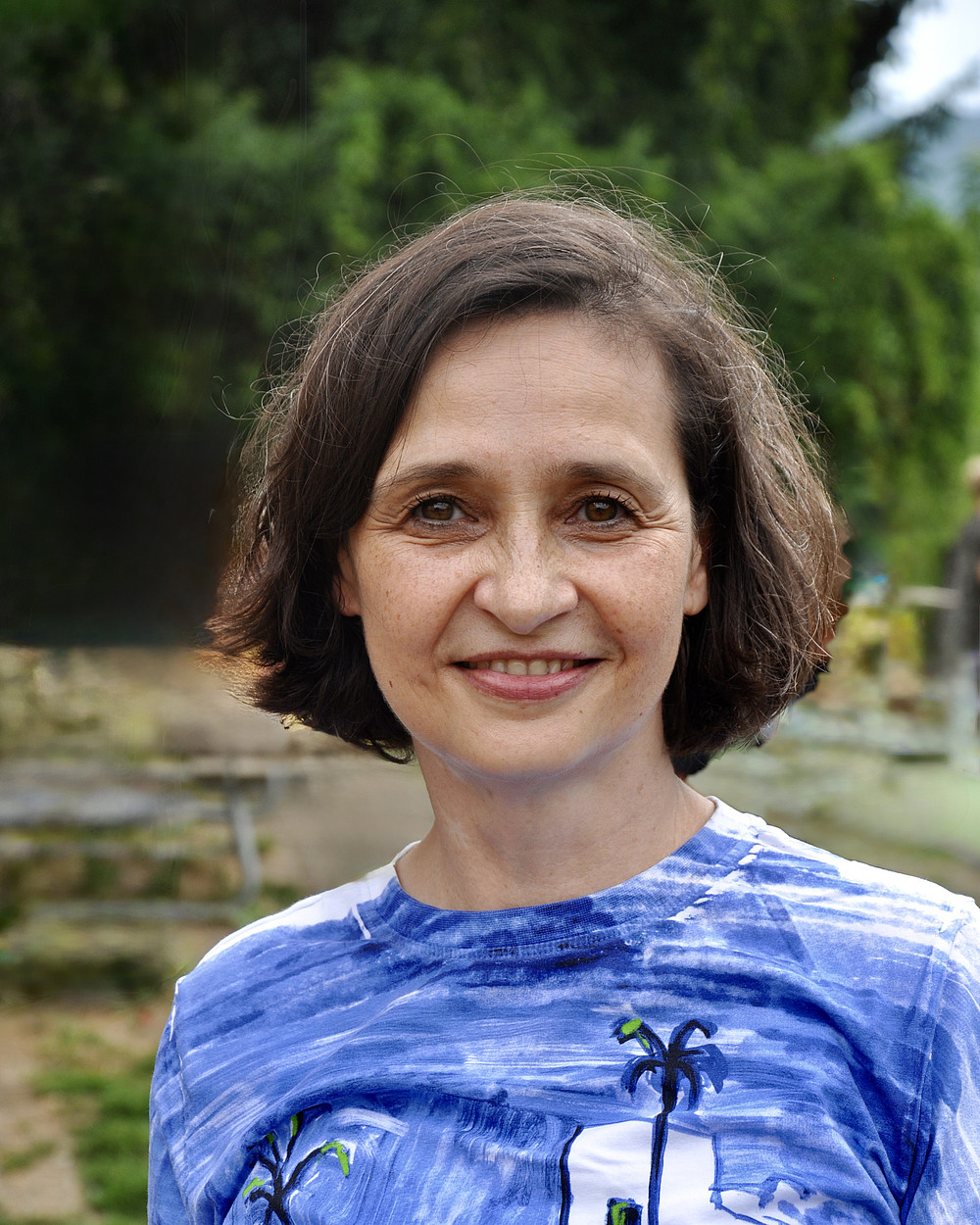
What do you find exciting about your work?
From early on, I was captivated by the structures of spoken German, especially where language deviates from the supposedly "correct" standard. Think of subordinate clauses structured like main clauses, multiple elements appearing before the finite verb in main clauses, or finite sentences that are grammatically sound even without a subject. It gets really interesting because not everything considered "forbidden" in the written standard is automatically "acceptable" in spoken German. Linguistics doesn't just dismiss these phenomena as "deviations" or "bad German"; instead, we take them seriously and investigate them systematically. My doctoral research focused on these spoken language structures. It revealed just how much underlying grammar exists in seemingly spontaneous speech and highlighted the intricate connections between syntactic variation, semantics, and pragmatics. This experience had a profound and lasting impact on me – it's a fascination that has never let go.
Being able to learn and further develop the analytical methods myself only deepened my interest. I found ideal conditions for this at Goethe University of Frankfurt and the Leibniz Institute for German Language (IDS) in Mannheim. There, I had the opportunity to learn not only the theoretical foundations but also the practical "craft" of linguistics firsthand, especially how to systematically collect and analyze language data. I was also fortunate to contribute to the second volume of the "Handbook of German Connectors" (Handbuch der deutschen Konnektoren). This led to intensive work on the semantics and function of sentence connectors – an incredibly exciting and dynamic field of research in which I remain actively involved.
Looking ahead: What are your future research priorities?
Looking forward, I plan to continue to focus on authentic language data. I aim to more strongly connect my interests in spoken grammar and language variation with the topics of multilingualism and the interplay between language and society. I see great potential in bridging fundamental linguistic research with application-oriented approaches. For instance, what impact do technological advancements and societal changes have on the popularization of linguistic expertise? And how is linguistics redefining its role in this evolving landscape?
At the same time, teaching remains a high priority for me. I want to continue fostering methodological skills, integrate modern tools like corpora and AI-based applications, and empower students to conduct their own research. Linguistics needs a vibrant future, and I believe students should be actively involved in shaping it.
Dr. MA. MA. Zi Huang 黄紫
How did you get into linguistics?
I majored in Hispanic Philology in Shanghai International Studies University. We spent the first two years just learning Spanish, so I had the time to take on language-learning as a hobby, and dreamed of becoming a polyglot. At that time I took a phonetics course, which introduced to me linguistics as a science. I was immediately interested, but there weren't many other linguistic courses available for undergraduate students.
Later I studied an MA in linguistics at Pompeu Fabra University in Barcelona, where I had many great professors. A friend convinced me that formal linguistics (syntax, semantics, etc.) was the coolest subfield of linguistics, so I went on to learn more. It did turn out to be fun, and I eventually decided to pursue a PhD in linguistics.
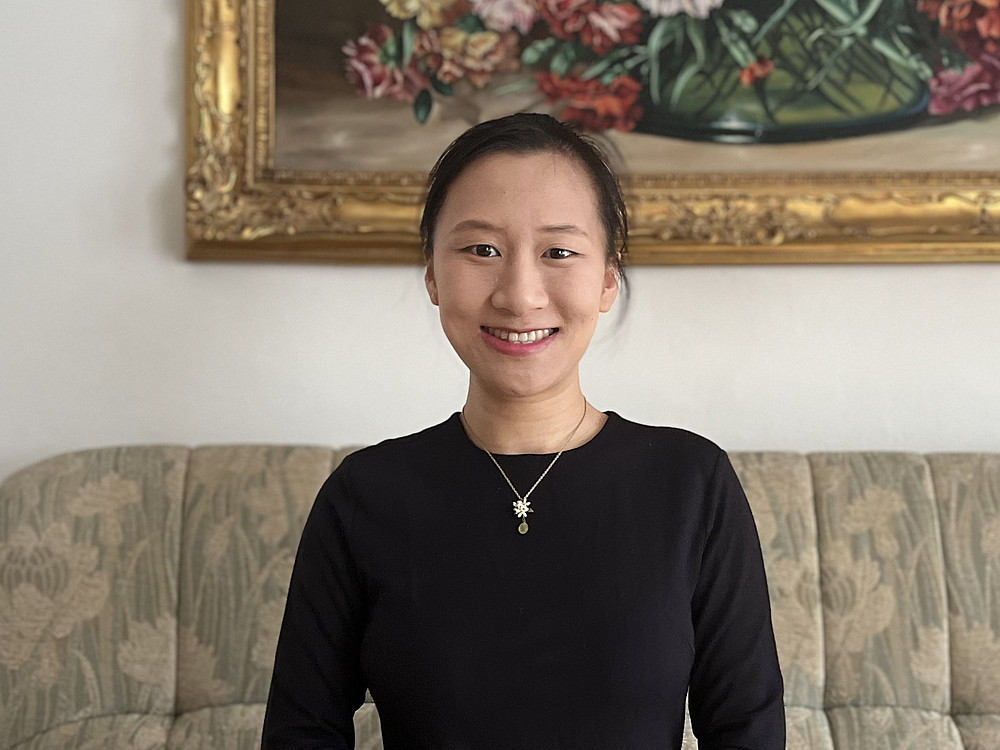
What do you find exciting about your work?
For me the greatest part of linguistic research is its ability to surprise. Semantics is especially fascinating because when you start with a puzzle to solve, you never know what it leads you to. I remember the amazing moment of surprise when I first read Greg Carlson’s (1977) thesis: He introduced a puzzle regarding the interpretation of noun phrases, but the solution was in the verb phrases! I was deeply impressed and decided this was what I wanted to do: to make surprising theoretical claims – of course based on solid linguistic data and valid arguments.
Looking ahead: What are your future research priorities?
Languages allow us to express the same idea in many ways. For example, you can ask "Do you mind me opening the window?" or "Do you mind my opening the window?". Some people claim that when you express things in different ways, the meaning is never entirely the same, so one thing semanticists do is to find out those subtle differences. One of the concepts we use is called referentiality: two similar phrases may appear in the same context, but one is referential – meaning that it refers to something or some idea – and the other is not referential. Linguists have different ideas about what referentiality is – whether it should be dealt with in syntax, semantics or pragmatics – and about what syntactic structures bring referentiality. I am studying the concept of referentiality in nominalizations, using corpus data and experiments.
Dr. phil. Sergei Monakhov
How did you get into linguistics?
My academic career has been somewhat unusual so far. My interest in linguistics, computational linguistics, and psycholinguistics was slow to develop, and though I was able to build a strong foundation of knowledge both in general and historical linguistics while doing my BA at St. Petersburg State University, it was not until I started my MA studies at Friedrich Schiller University in Jena that I became truly fascinated with the science of language. The overall usage-based flavour of the master program fostered my understanding of linguistic research as a data-driven endeavour. After completing my MA studies, I was offered a temporary position as a research fellow at the Institute for English and American Studies, which allowed me to write and defend with highest honours my PhD thesis dedicated to the formation and processing of complex words in English, Russian, and German. In March 2025, I won a three-year ESPRIT research grant of the Austrian Science Fund and thus became a senior postdoc at the University of Graz.
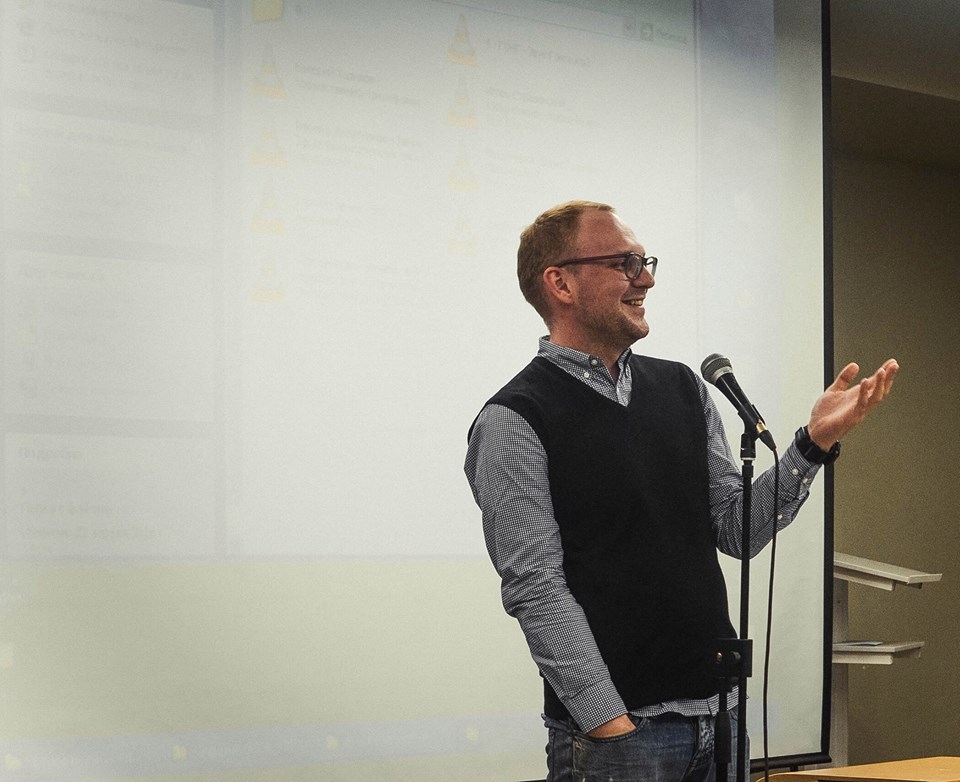
What do you find exciting about linguistics?
I believe that one of the most miraculous features of natural language design is that speakers can understand perviously unseen words and coin novel words that have never been used before. This brings evidence that in the process of word comprehension and production, people operate on some sublexical elements, that is, chunks of word structure. How these chunks are recognised, interpreted, and arranged in the brain is one of the most intriguing questions of modern linguistics. Traditionally, it was assumed that sublexical elements, called morphemes, have independent cognitive status, that is, are stored alongside holistic words, have their own meanings, and can be combined with each other to produce new words. More recently, a new family of theories emerged that posit words, not morphemes, as basic units of lexical processing. Under this approach, sublexical elements are believed to be parsed out of individual lexemes due to human sensitivity to statistical regularities in the input data.
The morpheme-based approach provides an intuitive explanation for regular patterns of language structure, but many complex words are idiosyncratic. For example, in English, there are several hundred bound bases of Romance origin, most of which are semantically so obscure that it is hard to see how speakers can recognise and use them as independent units. The word-based approach seems to overcome many problems of the explicit representation of morphemes. It is strongly associated with creating full-fledged computational models that capture morphological effects through iterative whole-word processing. In the models, words can be encoded in several ways, from simple n-grams to units obtained through complex character-convolution algorithms. This approach, however, is not without its problems. Crucially, it remains unclear exactly what is represented in the mental lexicon and how speakers acquire chunks of certain sizes in the process of learning.
The project I will be working on in Graz implies creating a new computational model of morphology that is based on graph theory and is intended to elaborate the word-based approach. The model represents a network of morphological elements segmented out of individual words through distributional analysis which is driven by two general factors: formal similarity and co-occurrence frequency. Hence, when several related words include overlapping parts, these parts can be identified as sublexical units. In the model, a single learning mechanism is used to account for the emergence of morphological structure and the formation of complex words. It is based on a key concept of graph theory, the notion of shortest path, which refers to the task of finding optimal paths between two nodes in a network. Semantics is also represented in the model distributionally. I contend that just as word meanings are inherently context-determined, so are the meanings of those units of word structure that are singled out from words by the shortest path analysis.
Let's take a look into your future: what would you like to focus on in your research in the future?
My main research topics are morphological processing, lexical modelling, linguistic creativity, language acquisition, and language change. Specifically, I am interested in the internal structure, semantics, and distributional properties of words, in how they are created, stored, and processed in the brain. In my studies, I have always tried to combine computational and experimental approaches and test my hypotheses on several languages. More globally, I want my research to facilitate the computationally effective and theoretically rigorous study of language as a complex adaptive system. I am a fervent advocate of establishing closer ties between theoretical and computational linguistics that will benefit both sides. On the one hand, any linguistic theory is interested in a complete and sound formalisation of its theoretical framework. On the other hand, computational linguistics crucially depends on the insights and data of traditional linguistic theory to which to apply its mathematical methods. My main aspiration is, on the one hand, to promote greater information sharing between the domains of theoretical and computational linguistics, and on the other hand, to contribute to better collaboration of computational linguists and machine learning engineers to provide for more cognitively plausible AI systems and for better linguistic interpretability of their results.
MA Anneliese Kelterer
How did you get into linguistics?
As a teenager, I decided to learn my grandfather's language, Dutch. When I wrote down multilingual vocabulary lists of English and French that I learnt at school, I noticed certain regularities between German, English and Dutch, for example. When I found out that these sound correspondences were derived from a common word origin, I actually wanted to study Indo-European studies. However, as this degree programme was abolished shortly before I started my studies, I decided to study general linguistics. In this I finally found an application for my general preference for analytical thinking, which was evident in many areas of linguistics, but for me particularly in phonetics and phonology.
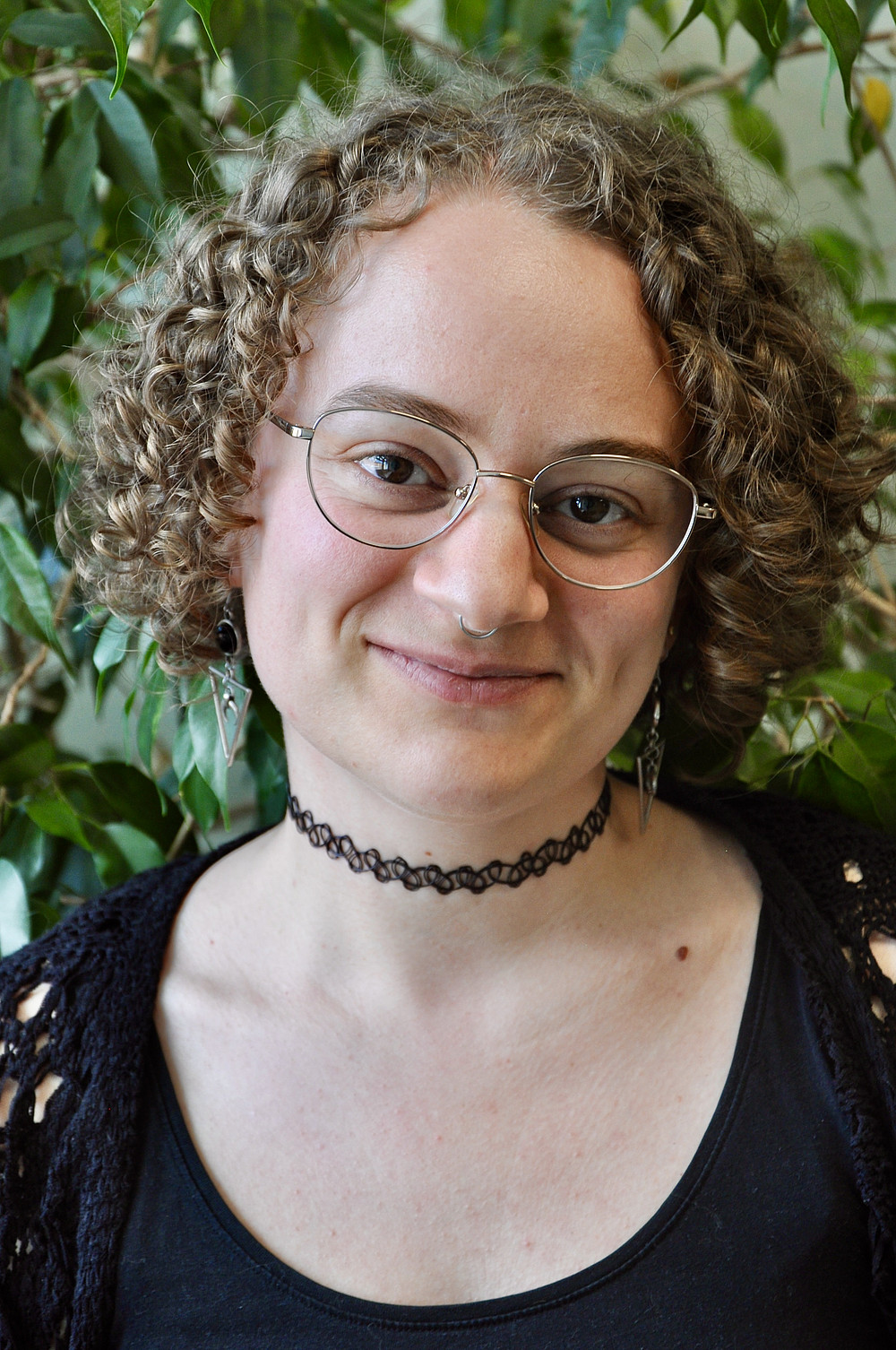
What do you find exciting about linguistics?
I have a special love for the phonetic aspects of language. Listening to audio recordings several times to listen for phonetic realisations makes my heart beat faster and my "occupational disease" is that in conversations I sometimes pay more attention to how someone pronounces something than to the content.
I particularly enjoy working empirically and finding patterns in my work. I find it particularly interesting to combine different methods because they often shed light on different aspects of a phenomenon, which gives you a more holistic picture.
In general, I find it exciting to find out what possibilities there are in different languages, or in one and the same language, to express different things, and the nuances that come with these similar but different expressions. Every time you find out that another language or variety expresses something in a completely different way, or makes completely different distinctions (e.g. phonetically or in meaning) than your own, it breaks up your own patterns of thought and perception a little more.
Let's take a look into your future: what would you like to focus on in your research in the future?
As a linguist, I am particularly interested in the linguistic diversity of our world. However, while a few languages are very well described and linguistically analysed at very detailed levels, in many other languages very basic things are still insufficiently described linguistically or not described at all. I would therefore like to focus on less studied languages, especially their phonetics and phonology. An approach that also takes into account the variation of different dialects, registers and styles within a language is important to me.